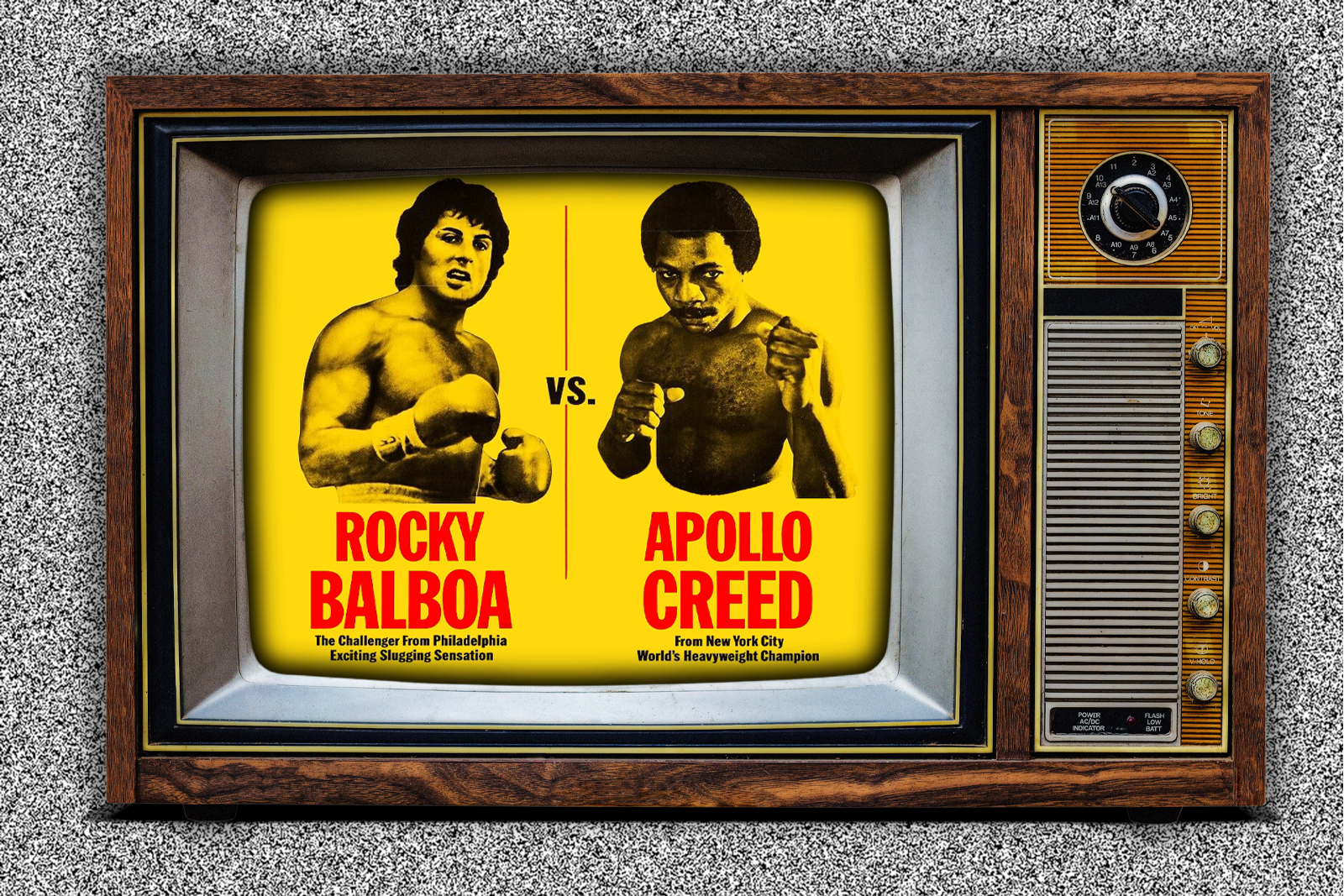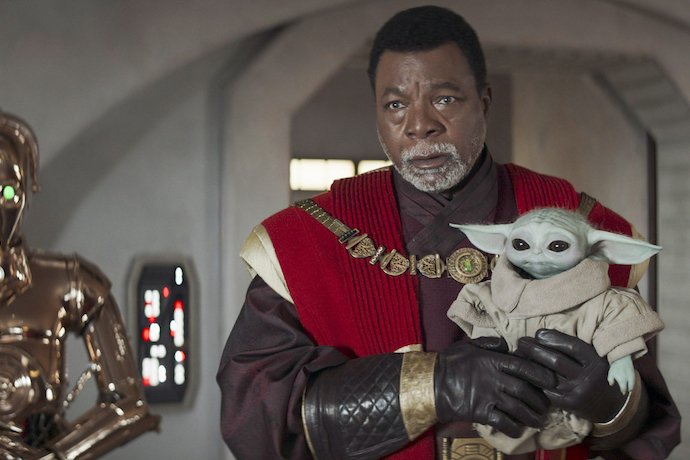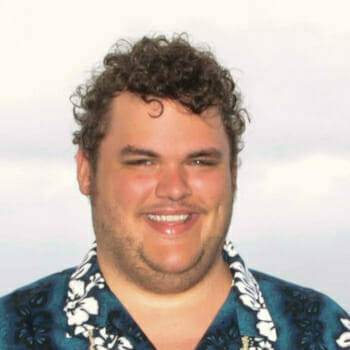
‘Creed’ and the Legacy of Carl Weathers
In 2021, during AwesomeCon, I had the opportunity to pose a question to the late, great Carl Weathers, who just recently passed away on February 2nd at the age of 76. At the time, Weathers was basking in a resurgence of fame, thanks in large part to his role in the Star Wars universe, where he portrayed Greef Karga on The Mandalorian. This character not only revived his career but also earned him an Emmy nomination for Outstanding Guest Actor.
Weathers’ remarkable career spanned various genres and generations, showcasing his versatility as an actor. Whether it was battling alongside Arnold Schwarzenegger in Predator or taking the lead in Action Jackson, Weathers displayed a range of dramatic chops. Yet, he also excelled in comedy, whether as Chubbs, Adam Sandler’s golfing guru in Happy Gilmore, or playing a heightened version of himself in Arrested Development.
However, it was his iconic role in the Rocky films that resonated most with fans. Weathers portrayed Apollo Creed, the formidable boxing adversary and eventual close ally of Sylvester Stallone’s Rocky Balboa, across the first four films of the franchise. His role was more than just memorable—it was foundational to the series’ legacy. Interestingly, the inquiry before mine centered on his flamboyant performance alongside James Brown in Rocky IV, performing “Living in America.” Today, the Rocky legacy continues to evolve, with the Creed spinoff series, focusing on Apollo Creed’s son. Weathers’ contribution to this storied franchise—and the broader tapestry of film—is indelible, marking him as a figure whose impact transcends the screen.
When the first Creed movie debuted in the fall of 2015, it had felt like a year that had already hit peak “legasequel,” or “movies all about revitalizing old franchises through the notion of legacy” as defined by ScreenCrush. These usually have the older characters from previous movies passing the baton to a new generation while getting a respectful send-off of their own. One of the most acclaimed movies of 2015 was the long-delayed fourth installment in the Mad Max series. The fourth entry in the Jurassic Park franchise and the long-awaited seventh installment of the Star Wars franchise broke records at the box office.
In Creed, Michael B. Jordan’s Adonis Creed is the illegitimate child of Apollo. Adonis is a restless fighter, taking on amateur boxing matches in Mexico. He eventually moves to Philadelphia, hoping to be trained by his father’s old friend, the legendary Rocky Balboa.
Adonis seeks Rocky out at the restaurant he now owns and asserts that he is Apollo’s son. Adonis pleads with Rocky for his mentorship. “Since we’re pretty much like family,” Adonis asks, motioning at a framed picture of Rocky and Apollo duking it out hanging on the wall. “Who won the third fight?” This invokes a scene right before the credits of Rocky III, where the victor of that Creed-Balboa rematch had been left unknown for 30 years. “He did,” Rocky admits.
The first Creed movie was the result of an investment into an idea pitched by up-and-coming director Ryan Coogler. Coogler already had 2013’s Fruitvale Station, a gut-punch debut movie which was also his first collaboration with Jordan, under his belt, but desired to add this story to the Rocky franchise. The first Creed movie felt like it came out of nowhere, the result of there just not being that much interest in going back to the Rocky well, particularly when it felt like Stallone had bid adieu to the role after 2006’s well-received Rocky Balboa. But quickly, buzz began to build. It felt like a breakthrough role for Jordan, who already had Fruitvale Station under his belt, as well as memorable supporting turns on TV shows like The Wire and Friday Night Lights.
It also felt like a major comeback of sorts for Stallone, who would end up garnering his first Oscar nomination for acting since the first Rocky movie in the Best Supporting Actor category, in addition to winning all sorts of other recognition and accolades. Coogler already had Marvel’s attention when it came to potentially helming an ambitious adaptation of Black Panther, but the success of Creed is what pushed him over the finish line, cementing his successful reputation in Hollywood.

But I think what surprised audiences about Creed, myself included, was its heart. Adonis struggles not only in the ring but in a burgeoning romance with his neighbor, the musician Bianca, played by Tessa Thompson. As Rocky is diagnosed with non-Hodgkin’s lymphoma, he doesn’t want to go through chemotherapy, promising himself that he wouldn’t seek to get better after, as he puts it, “everything I got has moved on…and I’m here.” Adonis pushes Rocky to treat his cancer as he prepares for a boxing match that could potentially change everything
Creed II followed three years later in 2018, and it had no easy task in proving that the success of the first movie was no fluke. This time, Adonis is succeeding in the boxing world, but a new challenger emerges in the form of Viktor Drago (Florian Munteanu), the son of villain Ivan Drago from Rocky IV, played memorably by Dolph Lundgren. Drago famously killed Apollo during a boxing match depicted in that movie, making the stakes all that much more personal for Adonis.
In Creed II, Adonis embarks on a redemptive quest to defeat Viktor Drago after a devastating initial loss. Pushed to his physical and emotional limits, Adonis trains relentlessly under Rocky’s mentorship, who reluctantly supports him despite fears of repeating history. Amidst this intense preparation, his personal life evolves—he proposes to Bianca, they relocate to Los Angeles to be near his mother, and anxiously await the birth of their first child.
Creed II enriches the franchise by deepening themes of legacy and resilience, balancing professional ambition with personal challenges. It successfully navigates the delicate balance between honoring its predecessor and forging its own path, amplifying emotional stakes, and exploring the complexities of its characters’ lives.
Creed III, released last spring, was also the directorial debut of Jordan. Rocky is no longer in this installment, and how fitting that it feels like a much more personal story in his absence. Adonis seemingly retires after becoming heavyweight champion and defeating his rival from the first movie, “Pretty” Ricky Conlan (Tony Bellow). A new threat emerges from Adonis’ past as his former childhood friend Damian enters the picture, played by the now-disgraced Jonathan Majors. Adonis initially goes out of his way to provide Damian with opportunities, only for Damian to turn heel and challenge him for the heavyweight boxing championship of the world.
If the first Creed installment invoked the first Rocky and the second Creed invoked the fourth Rocky, this feels like it is channeling Rocky III, where a now-successful Rocky faces an aggressive up-and-coming boxer played by Mr. T. Jordan’s enthusiasm for the material shines through. It is a very admirable effort, even showcasing Jordan’s fascination with anime as being a major influence during the climactic boxing match at the film’s finale.
Shortly after its release, Creed became a touchstone movie in my family. We rooted for Stallone in what I still think is the biggest acting-related Oscar snub in years. We cheered as both Coogler and Jordan moved on to bigger projects and higher levels of fame. We kept the first movie in permanent rotation while supporting its sequels by seeing them on the big screen.
So, my question to Carl Weathers ended up being about Creed, specifically how aware he was of it when it was in development. I asked if either Coogler or Stallone had reached out to him, the latter of which had me impersonating Stallone’s iconic drawl, which got a laugh from the audience. Weathers chuckled before saying that I came up “to entertain everybody, that’s why you did the Stallone voice.”
But then Weathers said that he had known Coogler through some work he had done at the Directors Guild of America. Coogler did run the concept by Weathers, and Weathers reassured him it was his movie to make. Creed is a stronger movie because you never see Apollo physically outside of pictures and archive footage, but the character’s presence is nonetheless felt throughout.
My heart sank when I heard the news about Carl Weathers. It felt like he was having a much-deserved late-career second wind thanks to The Mandalorian. I followed him on Twitter, where he ended each tweet with #BePeace. When it comes to his legacy regarding the Rocky movies, both Rocky Balboa and Apollo Creed are enhanced by the way they play off of each other, first as rivals, then as eventual friends.
Compelling narratives often stem from characters stepping out of their comfort zones, a concept vividly embodied by Apollo Creed’s evolution across his film appearances. The Creed trilogy further elevates his legacy, spotlighting his family and descendants, despite Carl Weathers’ absence from these sequels. Weathers’ portrayal of Apollo leaves a lasting legacy, ensuring his impact will resonate far beyond his lifetime, marking him as a timeless figure in cinematic history.

